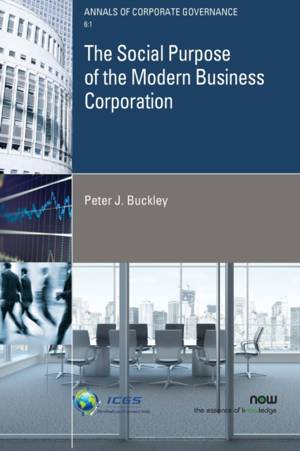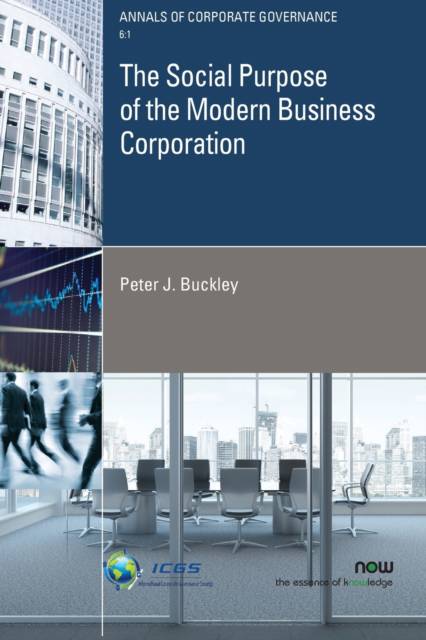
- Afhalen na 1 uur in een winkel met voorraad
- Gratis thuislevering in België vanaf € 30
- Ruim aanbod met 7 miljoen producten
- Afhalen na 1 uur in een winkel met voorraad
- Gratis thuislevering in België vanaf € 30
- Ruim aanbod met 7 miljoen producten
Zoeken
Omschrijving
This monograph examines the evolution of the social purpose of the corporation. This development has taken place against the background of changing regulations and globalization. Consequently, international regulations, codes of conduct and standards have impinged upon corporate strategy as Corporate Social Responsibility (CSR) practices have transmuted from compliance to notions of "corporate citizenship" and then to "the responsible corporation". This growing web of constraint on corporations has led to the belief that corporations should earn a "license to operate" based on their social contributions. The idea that social goals must be internalized into corporate strategic goals leads to the emergence of the "purposeful corporation". These changes in the environment for business provide strategic opportunities as well as constraints. The first section examines the Corporation and the related issues of ownership and control and the role of stakeholders. The following section examines the Social Responsibility of the Corporation, its governance and changing attitudes to corporate social responsibility, covering periods of awakening to CSR and compliance, "the corporate citizen" notion and the emergence of the "responsible corporation". The next section analyzes "Regulation and Constraints on the Corporation" to set the scene for the move from "the Web of Constraint to the Web of Opportunity". This section includes the idea that corporations need to earn a "license to operate through positive social contributions and the move to positive social purpose in the emergence of the "purposeful corporation". The monograph provides a Conclusion and Research Agenda for future research.
Specificaties
Betrokkenen
- Auteur(s):
- Uitgeverij:
Inhoud
- Aantal bladzijden:
- 106
- Taal:
- Engels
- Reeks:
Eigenschappen
- Productcode (EAN):
- 9781680838749
- Verschijningsdatum:
- 6/09/2021
- Uitvoering:
- Paperback
- Formaat:
- Trade paperback (VS)
- Afmetingen:
- 156 mm x 234 mm
- Gewicht:
- 158 g

Alleen bij Standaard Boekhandel
+ 153 punten op je klantenkaart van Standaard Boekhandel
Beoordelingen
We publiceren alleen reviews die voldoen aan de voorwaarden voor reviews. Bekijk onze voorwaarden voor reviews.











